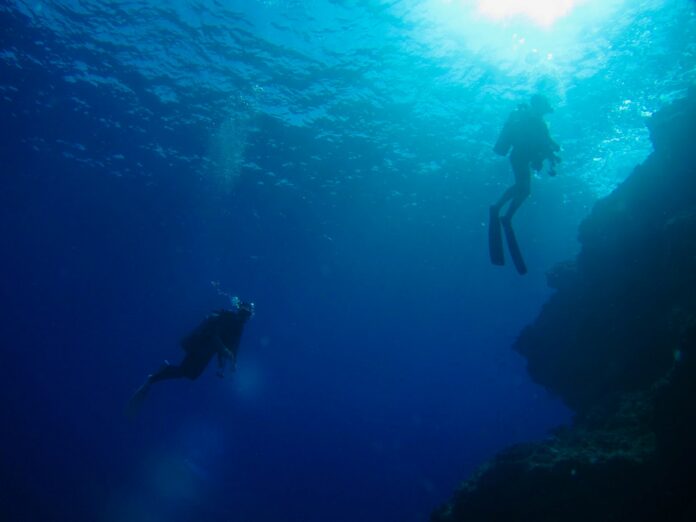Scuba diving is a fun and exciting way to explore the underwater world. And the more you do it, the more you want to continue! So let’s look at the different types of scuba certification and scuba diving certification levels and the differences between them.
Find out how long your scuba certification will last.
Types of Scuba Certification
Beginner Scuba Diving Certification Levels
Scuba Diver
Some dive agencies (SSI, PADI etc.) offer a Scuba Diver certification. This allows people to dive down to 12 meters with a dive professional’s supervision. It is a proper dive certification with a mixture of dive theory and practical skills.
Open Water
The Open Water course is the most popular beginner diving course. This allows people to dive down to 18 – 20 meters / 60 – 65 feet (depending on the dive agency), and is a mixture of dive theory and practical skills.
This certification allows you and another certified Open Water diver to dive together with no professional supervision. The course is comprehensive and teaches you safety procedures and basic navigation skills.
How old do you have to be to scuba dive?
Advanced Diver
Taking your Advanced Diver certification requires several dives with different components. These include but are not limited to; Deep dive, Navigation dive, Buoyancy dive, Night dive, Search & Recovery dive, Drift dive, Drysuit dive, Computer dive, Fish Identification dive.
During these dives, you will learn more about the theory behind that specific dive and practice the skills in the open water. This course is fun with an emphasis on diving, diving, diving, and improving your underwater skills.
Advanced Scuba Diving Certification Levels
Rescue Diver
The Rescue diver course is challenging and highly rewarding. Now that you are comfortable with your diving skills, you will practice responding to anxious divers and ‘rescuing’ panicked divers. There is little emphasis on diving in this course, and more emphasis on how to calm a panicked diver, how to get them out of the water, and the procedures with responding to an unconscious diver.
Read More: Rescue Diver Equipment Checklist
This course should only taken when you are very comfortable with your own buoyancy and diving skills. It is a great course for every recreational diver, as there have been many cases when someone has had to rescue their dive buddy in a real-life situation.
Specialty Diver
Focusing on specialty dives is a great way to channel your interests into diving. If you are keen on marine life, then you may choose to complete a Fish ID specialty. Or if you love shipwrecks, then you can choose the Wreck specialty to learn how to enter and penetrate a wreck safely. These specialties are usually a continuation from the Advanced Diver course where you can go more in-depth into a specific topic/dive component.
If you complete 5 specialties, you can receive the highest non-professional level in recreational diving. The Master Scuba Diver certification.
Find out the maximum age for scuba diving.
Professional Scuba Diving Certification Levels
Dive Master
As a Dive Master you can guide certified divers, work on dive vessels, assist an instructor on courses, and with some dive agencies, you can review certified divers with a refresher course. Being a Dive Master (DM) is a pre-requistie to being a scuba instructor.
The Dive Master course is one of the best experiences in your life (from my experience). You review your own knowledge when assisting on courses, upskill your diving to a professional level, have more responsibilities, all the while having fun. It is similar to an internship as you see most facets of a dive business, and will usually take around 4-8 weeks to complete.
Read More: Typical Divemaster Salary in Thailand
Scuba Instructor
Being a Scuba Diving Instructor is pretty badass. You have to be very responsible, make the courses fun and engaging for your students, AND teach scuba diving. The Scuba Instructor courses are around 10 to 14 days with an Instructor Exam (IE) at the end. In this course, you mostly learn about how to teach divers, how to adhere to the dive agency standards and how to respond to situations while teaching.
The above courses are the main types of scuba certification, with beginner, advanced, and professional levels. You will generally need to do these in order, and some specialties may have specific pre-requisites. There are different types of scuba certification for specialties that we have not included here, as these will differ between your chosen dive agency.
